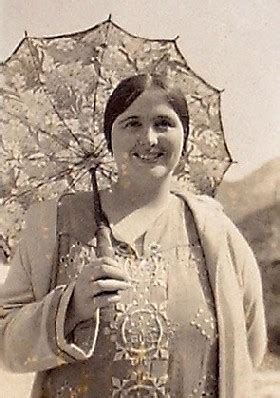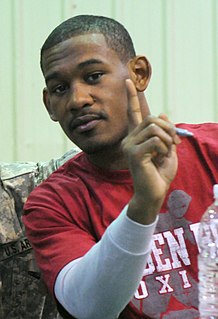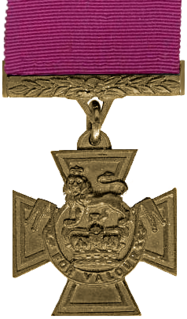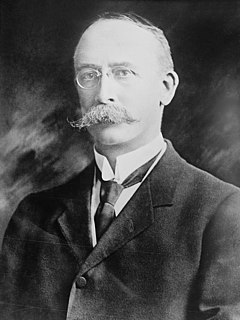A Quote by Patricia Wentworth
My dear father always said that when everybody had a telephone nobody would have any manners, because there wouldn't be time for them. And of course he was perfectly right.
Related Quotes
My uncle was the first one in my family to get a telephone. It was like going to the moon. He came running over to tell us, and we were so proud. A telephone! We didn't have to go to the candy store to phone any more. We went around telling everyone. But we didn't hear from my uncle for three days, so my father got worried. He said, Let's go over there. We got there, and my uncle was very depressed. I asked, What's the matter? He said, I got a telephone and nobody called me. He didn't give his number out - he didn't know that you had to!
America is so special, everybody wants to go there. And there's not a thought given to how it got special. It's just assumed it was made that way, I guess. It's just assumed that it's just there. And it's also assumed that it's always going to be there. Call it the golden goose or whatever you want but everybody saying that we have no right to keep anybody out because nobody kept us out, we all had to get here. Nobody here now actually started here. Of course, that's no longer true.
When I got married for the third time, and I had children from my other marriage there, that's what I said when it came time in the ceremony for me to say something. I said, "I'm grateful to everybody that participated, everybody that participated in my life that got me to this moment. And everything was dead-right because everything is right now."
I've always vowed that if I had a child, I would treat him right. My father was a perfect model for me because everything that he did wrong, or everything that he did I would just do the opposite. Which would be the right thing to do. So that is being in your son's life 100 percent, give them love, give them affection, give them discipline.
But what would have been the good?" Aslan said nothing. "You mean," said Lucy rather faintly, "that it would have turned out all right – somehow? But how? Please, Aslan! Am I not to know?" "To know what would have happened, child?" said Aslan. "No. Nobody is ever told that." "Oh dear," said Lucy. "But anyone can find out what will happen," said Aslan. "If you go back to the others now, and wake them up; and tell them you have seen me again; and that you must all get up at once and follow me – what will happen? There is only one way of finding out.
This is a story about four people named Everybody, Somebody, Anybody and Nobody. There was an important job to do and Everybody was asked to do it. Everybody was sure Somebody would do it. Anybody could have done it, but Nobody did it. Somebody got angry because it was Everybody’s job. Everybody thought Anybody would do it, but Nobody realized that Everybody wouldn’t do it. It ended up that Everybody blamed Somebody when Nobody did what Anybody could have done.
'My fingers,' said Elizabeth, 'do not move over this instrument in the masterly manner which I see so many woman's do. They have not the same force of rapidity and do not possess the same expression. But then I have always supposed it to be my own fault - because I would not take the trouble of practicing. It is not that I do not believe my fingers as capable as any other woman's of superior execution.'
Darcy smiled and said, 'You are perfectly right.'
At a turbulent public meeting once I lost my temper and said some harsh and sarcastic things. The proposal I was supporting was promptly defeated. My father who was there, said nothing, but that night, on my pillow I found a marked passage from Aristotle: Anybody can become angry--that is easy, but to be angry with the right person and to the right degree and at the right time and for the right purpose, and in the right way -- that is not within everybody's power and is not easy.
Let not men then in the pride of power, use the same arguments that tyrannic kings and venal ministers have used, and fallaciously assert that women ought to be subjected because she has always been so.... It is time to effect a revolution in female manners - time to restore to them their lost dignity.... It is time to separate unchangeable morals from local manners.
I asked him if it were a mirage, and he said yes. I said it was a dream, and he agreed, But said it was the desert's dream not his. And he told me that in a year or so, when he had aged enough for any man, then he would walk into the wind, until he saw the tents. This time, he said, he would go on with them.





































